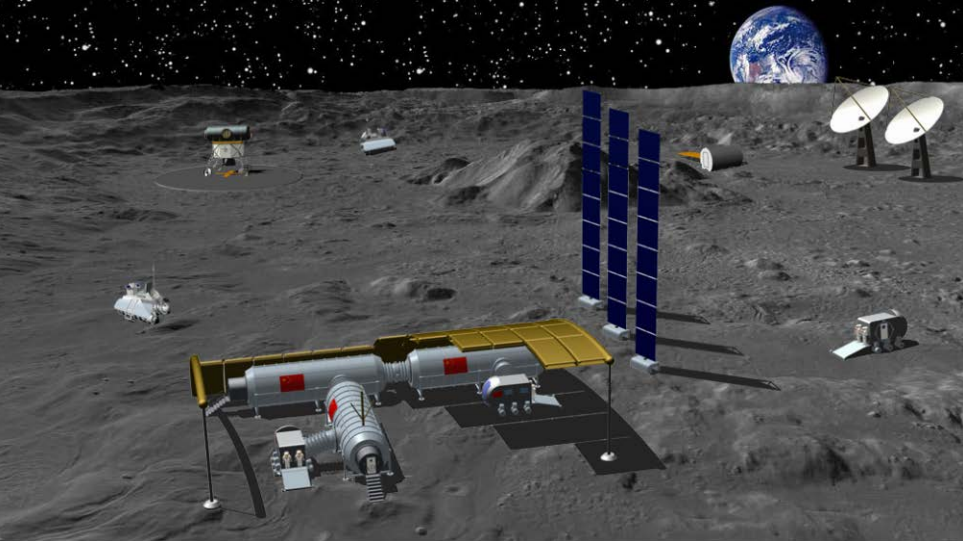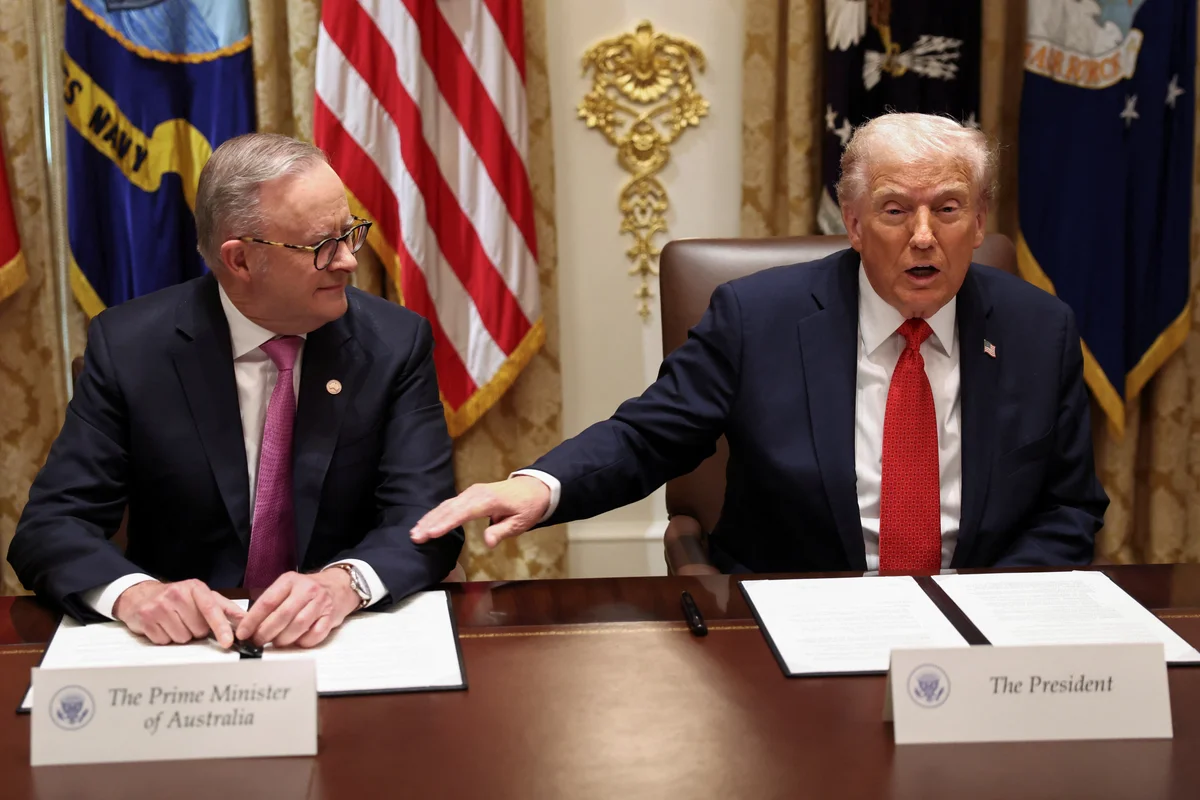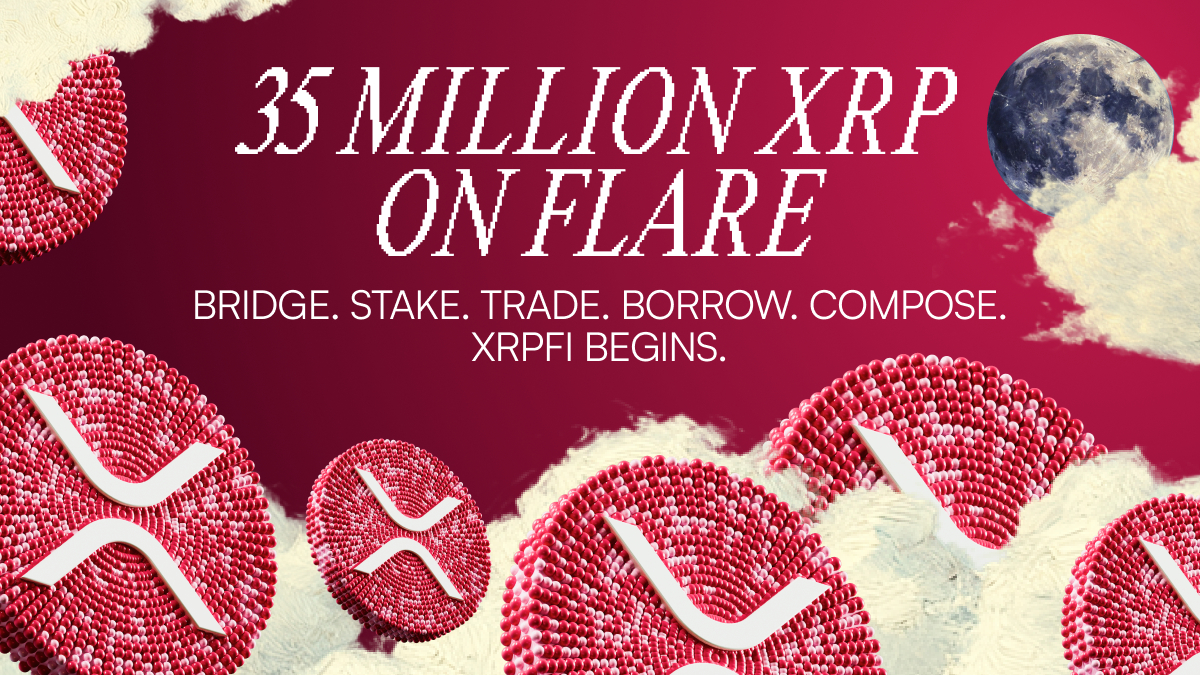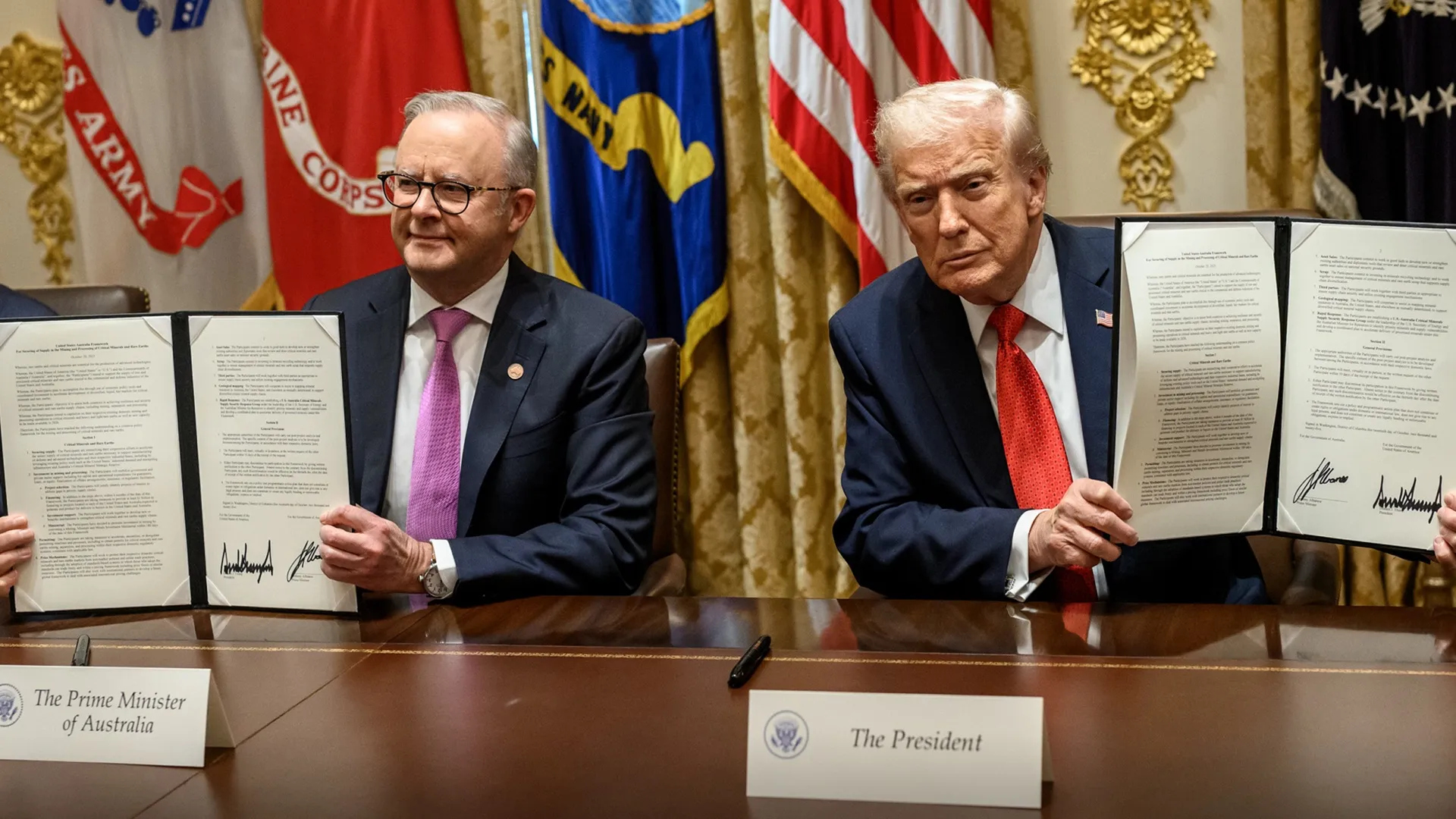Copyright Los Angeles Times
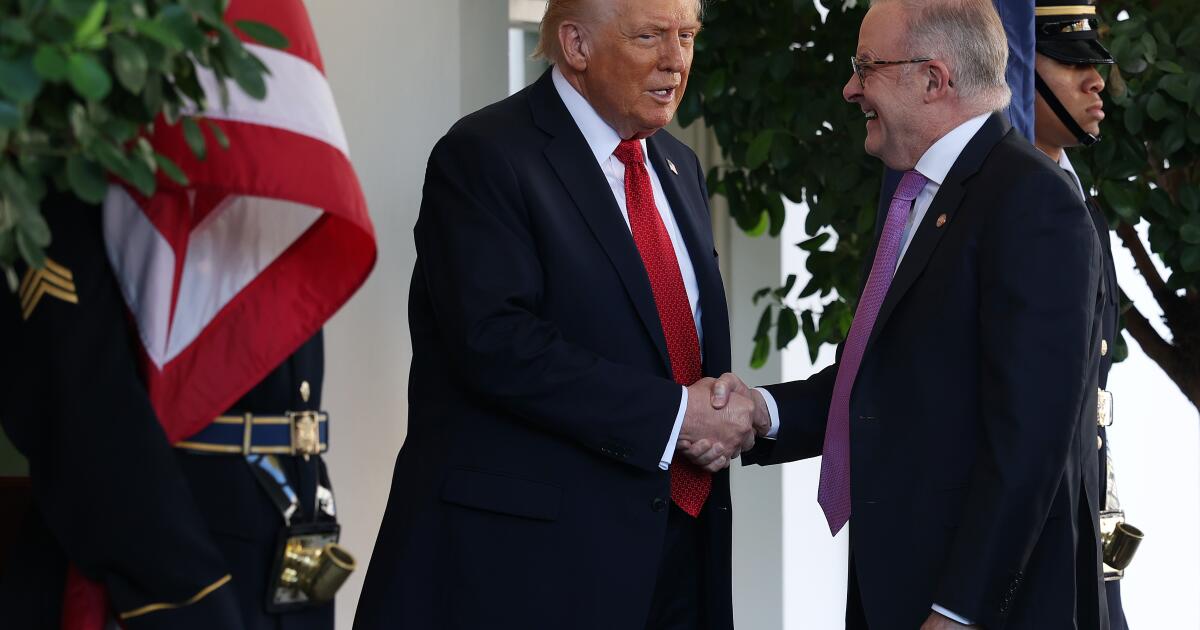
President Trump signed an agreement with visiting Australian Prime Minister Anthony Albanese to boost access to critical minerals and rare earths as the U.S. seeks to reduce reliance on Chinese supply chains. “We are discussing critical minerals and rare earths and we’re going to be signing an agreement that’s been negotiated over a period of four or five months,” Trump said Monday at the White House as the two leaders met. “In about a year from now, we’ll have so much critical mineral and rare earths that you won’t know what to do with them.” Albanese said the deal represented an $8.5-billion “pipeline that we have ready to go.” He hailed the agreement on minerals and rare earths as “taking it to the next level,” praising the economic and defense cooperation between the two countries. The two leaders said the agreement would include Australian processing of rare earths, with Albanese adding that his country had “capacity” to expand those efforts. The deal will begin with the U.S. and Australia each paying $1 billion over the next six months for initial projects, with some additional projects in both countries and one development to include Japan, the prime minister said. The sit-down, Albanese’s first White House visit since Trump returned to office, comes as the Australian leader looks to shore up ties with the U.S., using his nation’s wealth in critical minerals as leverage. China’s move to impose unprecedented export restrictions on rare earths has rattled economies across the globe, with U.S. Treasury Secretary Scott Bessent saying last week that allies — including Australia — are in talks about a united response. Australia, which holds the world’s fourth-largest deposits of rare earths, has sough to position itself as a viable alternative to China for supplies crucial to industries covering semiconductors, defense technology, renewable energy and other sectors. The country is also the base of the only producer of so-called heavy rare earths outside China through Lynas Rare Earths Ltd. Efforts to secure a deal were underway before Albanese’s visit. More than a dozen Australian mining firms held meetings last month in Washington with officials from various agencies and were told the U.S. was looking for ways to obtain equity-like stakes in companies, according to people familiar with the talks, part of a broader American strategy to develop supply chains to compete with China. Australian Treasurer Jim Chalmers met with U.S. investors from firms including Blackstone Inc. and Blue Owl Capital in New York last week to pitch his country as a stable, resource-rich destination for global capital and a key partner in efforts to diversify crucial supply chains. There has been growing confidence that Australia and the United States would begin discussions on how Canberra could provide secure rare-earth shipments and bolster U.S. capabilities. That belief has sparked investor enthusiasm, sending shares of miners such as Lynas up by more than 150% during the last 12 months. Submarine Sales Trump on Monday said the two leaders would also discuss “trade, submarines, lots of other military equipment,” with defense matters high on the agenda. The president has pressed Canberra to increase defense spending to 3.5% of gross domestic product from around 2% now, a move Australia has so far resisted. Another key issue is an arrangement for the U.S. under the AUKUS pact to sell Australia as many as five nuclear-powered Virginia-class submarines by the early 2030s. Australia and the U.K. would then design and build a next-generation submarine partly using American technology, due to be completed in the 2040s. The AUKUS agreement was signed by then-President Biden’s team in 2021 to counter Chinese military expansion in the Indo-Pacific region, and the submarine deal is central to the collective security agreement. The Trump administration, however, is reviewing the pact to determine whether it is “aligned with the President’s America First agenda,” according to the Pentagon, raising fears that Trump could quit the agreement. Officials from Australia and the U.K., though, have downplayed that prospect. And Trump on Monday suggested that he planned to proceed with the submarine sales. “We are doing that,” Trump said in response to a question about expediting the sales. “We have the best submarines in the world, anywhere in the world, and we’re building a few more, currently under construction. And now we’re starting, we have it all set with Anthony,” Trump said. “I think it’s really moving along very rapidly, very well.” The president also praised the military cooperation between the two allies. “You have done a fantastic job at weaponry,” Trump said. “And the kind of things that we do, a lot of joint work together. Our militaries work very, very closely together.” Still, the president suggested he was unlikely to offer tariff relief to Australia, which runs a trade deficit with the United States. Trump hit Australian goods with a baseline 10% tariff. “Australia pays very low tariffs — very, very low tariffs,” Trump said. Albanese faces a balancing act on trade as he meets Trump. The prime minister has also sought closer trade ties with China, Australia’s largest trading partner. Albanese visited Beijing in July, his second such visit since taking office.
